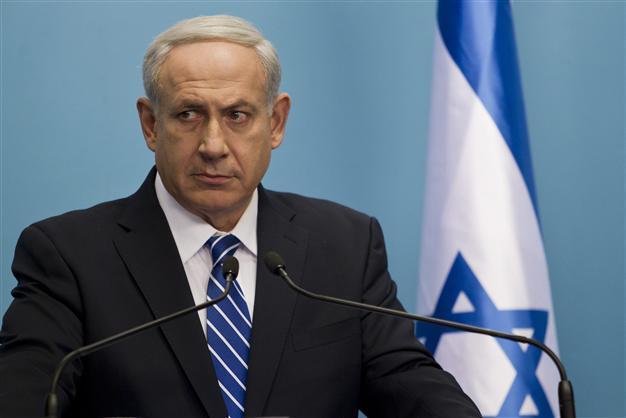Israel PM sitting pretty as election race begins
JERUSALEM - Agence France-Presse

Israeli Prime Minister Benjamin Netanyahu. EPA Photo
Israeli Prime Minister Benjamin Netanyahu began his re-election bid today after calling snap polls that he is tipped to win, presenting himself as the only hope of facing Iran and the global economic crisis.
Following his announcement late on Tuesday that the election was to be brought forward, Netanyahu fired the unofficial starting gun to a campaign expected to see Israelis go to the polls in January or February.
The move ended weeks of speculation about whether he would call an early vote in order to capitalise on his popularity, with newspapers unanimous that Netanyahu was in the enviable position of being the only realistic contender.
"The election campaign begins with Netanyahu being perceived as the only one who fills the prime minister's seat naturally," wrote Nahum Barnea in the top-selling Yediot Aharonot daily in a piece headlined: "The Usual Candidate." Although Netanyahu gave no date for the election, which had been due in October 2013, most commentators suggested the vote was likely to take place on either January 22 or 29.
The date is likely to be set next week when the Knesset, or parliament, reconvenes for its winter session.
"My duty as prime minister is to put the national interest before everything, and so I've decided that for the good of Israel we must go to an election now as quickly as possible," Netanyahu said on Tuesday.
Barnea said with no realistic opponent in the field, and the outcome largely known to both politicians and voters alike, parties would focus attention on the only variable -- the make-up of the next coalition government.
"In terms of Israeli democracy, this is an unfortunate reality. Many voters feel that not only is there no one to vote for, there is no one to vote against: Everyone (except for the Meretz) dreams of serving in the next Netanyahu government," he said, referring to a leftwing party.
Writing in the left-leaning Haaretz newspaper, commentator Ari Shavit said Netanyahu's policy of doing little had served him well.
"All he offered Israelis was stability: security stability, economic stability and political stability. But since Israel is surrounded by the stormy world economy and stormy Arab world, Netanyahu's make-no-progress stability turned into a political gold mine," he wrote.
"It allowed its leader to take no real steps and score no real achievement, and turned him into what seems today to be virtually the sole candidate to head the government of Israel." Netanyahu said the move to bring forward the election was sparked by a coalition deadlock over the 2013 budget, which includes a fresh series of harsh austerity measures.
In his address, Netanyahu was quick to burnish his government's security and economic credentials, presenting himself as the only guarantee in the face of the threat posed by Iran's nuclear programme, regional insecurity sparked by the Arab Spring, and the economic crisis.
Opinion polls indicate Netanyahu, who heads the rightwing Likud party, is well placed to stay in power, although his ratings hit a low point earlier this year after he pushed through an initial series of austerity measures.
The measures, which came on the back of mass protests over the rising cost of living, sparked public anger and saw Netanyahu's popularity slump to its lowest level since he came to power in March 2009, with 60 percent saying they were unhappy with his performance.
But according to a poll published in Haaretz at the end of September, Netanyhau's popularity has recovered from its summer low.
Likud, along with the other rightwing and ultra-Orthodox parties, would take 66 of the 120 seats in parliament if the election were held immediately, the poll found.
By comparison, the centre-left bloc would take only 54 votes in any general election.
Netanyahu's existing coalition, which groups rightwing, nationalist and ultra-Orthodox parties along with the centre-right Independence party led by Defence Minister Ehud Barak, currently holds 66 seats.
